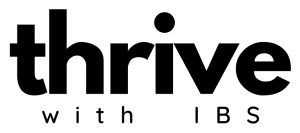Is coffee low FODMAP? Coffee is a common beverage consumed globally, often lauded for its health benefits, including potential improvements in cardiovascular health and the prevention of Alzheimer’s disease. However, the interplay between coffee and irritable bowl syndrome (IBS) is not straightforward. This blog post aims to explore the intricacies of this relationship, addressing whether your beloved coffee can be part of a low-FODMAP diet and how it affects gastrointestinal health. Let’s dive into the world of coffee FODMAP content and find out how it aligns with the needs of IBS sufferers.

Learn more about FODMAPS in beets, mushrooms, and peanut butter.
Table of Contents
FODMAPs are a collection of short-chain carbohydrates and sugar alcohols found in various foods. These include fructose (a simple sugar), lactose (milk sugar), fructans (found in wheat, garlic, and onions), galacto-oligosaccharides (GOS) (found in beans and legumes), and polyols (sugar alcohols like xylitol and mannitol).
For many with IBS and similar gastrointestinal issues, these FODMAPs are not well absorbed in the small intestine. This poor absorption can cause significant gut symptoms, such as bloating, gas, and altered bowel movements. As a result, a low-FODMAP diet, which limits foods high in these carbohydrates, is often recommended to manage IBS symptoms effectively.
Understanding FODMAPs is crucial for anyone dealing with gastrointestinal problems. It helps in identifying potential IBS triggers and making dietary choices that can significantly improve gut health. But the big question remains: where does our beloved coffee fit into this dietary puzzle? Let’s delve deeper into coffee’s nutritional profile to understand its role in a low-FODMAP diet.
Is Coffee Low FODMAP?
Coffee primarily contains caffeine and does not have significant amounts of fructose, lactose, mannitol, sorbitol, GOS, or fructan.
According to studies from Monash University, people with IBS can usually drink a moderate amount of some coffees without problems, as they are low in FODMAPs. This includes types like espresso and instant coffee.
But if you add things like milk, sauces, non-dairy creamers, or sweeteners to your coffee, they can bring FODMAPs into your drink.
Coffee And IBS
Coffee is more than just a wake-up call; it’s a complex beverage with a rich nutritional profile. Loaded with polyphenols and antioxidants, coffee has been linked to various health benefits, including potential protective effects against certain diseases. But when discussing coffee in the context of a low-FODMAP diet, its FODMAP content and impact on digestive health take center stage.
Polyphenols in coffee have been shown to benefit the digestive system. They possess antioxidant properties that can potentially improve gut health and overall wellness. However, for IBS sufferers, the primary concern is often the caffeine content in coffee. Caffeine is a known stimulant that can affect gastrointestinal function, influencing aspects like stomach acid production and colonic motor function.
For those sensitive to caffeine, it can exacerbate IBS symptoms, leading to discomfort and digestive problems. Moreover, caffeine metabolism can vary greatly among individuals, influenced by factors like genetic makeup. Some people may metabolize caffeine slowly, leading to prolonged effects on the central nervous system and gut irritant properties. Here are some potential issues that might arise from coffee consumption:
- Stomach Acid Production: Coffee can stimulate stomach acid production, which might lead to acid reflux or heartburn in sensitive individuals.
- Coffee and Anxiety: The caffeine in coffee can cause increased anxiety or irritability, which might indirectly affect gut health.
- Coffee and Sleep: Excessive coffee consumption can affect sleep patterns, leading to poor digestive health.
Caffeine, a stimulant in coffee, can increase stomach acid and affect digestion, potentially worsening IBS symptoms and causing issues like acid reflux, anxiety, and sleep disturbances.
High FODMAP Coffee Additives To Avoid
Adding certain ingredients to coffee can transform it from a low-FODMAP beverage into a high-FODMAP one, which could trigger symptoms in individuals with IBS. Here are some common additives that can make coffee high-FODMAP:
- High FODMAP Milk: Regular cow’s milk, goat’s milk, and sheep’s milk are high in lactose, which is a FODMAP.
- Certain Non-Dairy Milks: Some plant-based milks, like those made from soybeans (not soy protein) or cashews in large servings, can be high in FODMAPs.
- High FODMAP Sweeteners: Honey, agave syrup, and high fructose corn syrup are high in fructose, making them high FODMAP sweeteners.
- Flavored Syrups and Sauces: Many flavored syrups and sauces, like those used for mochas or flavored lattes, contain high FODMAP ingredients such as high fructose corn syrup or other sweeteners.
- Pre-Mixed Coffee Drinks: Bottled coffee drinks often contain high-FODMAP ingredients like milk, high-FODMAP sweeteners, or flavor additives.
- Chicory Root: Chicory root is often used as a coffee substitute or additive for its similar flavor, but it is high in FODMAPs.
- Commercial Whipped Cream: Commercial whipped cream can contain lactose and other high-FODMAP additives.
- Some Creamers: Non-dairy creamers can sometimes contain lactose or other high-FODMAP ingredients.
- Inulin: This fiber supplement is sometimes added to coffee beverages for extra fiber, but it is a high-FODMAP ingredient.
- Large Quantities of Cocoa Powder: Used in mochas or hot chocolate, cocoa powder can be high in FODMAPs in larger servings.

Low FODMAP Coffee Creamers
- Lactose-Free Dairy Creamers: These are suitable for a low-FODMAP diet as they have the lactose removed, which is the main FODMAP in regular dairy.
- Almond Milk: Almond milk is low-FODMAP in small servings. Choose almond milk creamers that are free from high-FODMAP additives.
- Rice Milk: Rice milk is generally low-FODMAP and can be a good dairy-free creamer option.
- Coconut Milk: Coconut milk in small quantities is low FODMAP. Look for coconut milk creamers without added high-FODMAP ingredients.
- Oat Milk (if certified gluten-free): For those who tolerate oats, gluten-free oat milk in a small serving can be a low-FODMAP option.
- Soy Milk: Soy milk made from soy protein (not whole soybeans) is low FODMAP and can be used as a creamer.
- Hemp Milk: Hemp milk is low-FODMAP in small servings and can be used as a creamer.
- Half and Half (lactose-free): If available, lactose-free half and half is a suitable low-FODMAP creamer.
- Fresh Whipped Cream: Fresh whipped cream is low in FODMAP and can be safe for consumption in small quantities.
- Monash University Certified Creamers: Opt for creamers that have been tested and certified by Monash University as low FODMAP.
When choosing low-FODMAP creamers, always read the ingredient labels carefully to ensure there are no hidden high-FODMAP ingredients. Additionally, individual tolerance levels can vary, so it’s important to monitor your symptoms and adjust your intake accordingly.
Lactose-free dairy creamers, almond milk, rice milk, coconut milk, oat milk, soy milk (from soy protein), hemp milk, half and half (lactose-free), fresh whipped cream, and Monash-certified creamers are all low fodmap coffee creamers that you can use with your coffee to keep your IBS symptoms under control.
Low FODMAP Coffee Drinks At Starbucks
Enjoying a low-FODMAP coffee drink at Starbucks requires some careful selection and customization, as many of their standard offerings contain high-FODMAP ingredients. Here’s a list of ways to order low-FODMAP coffee drinks at Starbucks:
- Plain Brewed Coffee or Americano: Stick with a simple brewed coffee or an Americano (espresso with water), both of which are low FODMAP.
- Espresso Shots: Order a single or double espresso if you prefer a stronger coffee.
- Lactose-Free Milk Options: Request lactose-free milk, almond milk, or coconut milk instead of regular dairy milk. Note that some individuals might be sensitive to almond and coconut milk, so be aware of your personal tolerances.
- Avoid High-FODMAP Additives: Steer clear of high-FODMAP syrups, sauces, and sweeteners. Stick to simple sugar or bring your own low-FODMAP sweetener.
- Plain Latte or Cappuccino: Order a latte or cappuccino made with a low-FODMAP milk alternative. Remember to avoid added flavors or toppings.
- Iced Coffee: Choose plain iced coffee without any sweeteners or cream. You can add your low-FODMAP milk alternative if desired.
- Black or Green Tea: If you want to avoid coffee, plain black or green tea is a safe, low-FODMAP option.
- Customize Frappuccinos: Ask for a Frappuccino made with a low-FODMAP milk alternative and without high-FODMAP additives like syrups or sauces.
- Decaffeinated Options: If caffeine is a concern, choose decaffeinated coffee options.
- Cold Brew: Starbucks cold brew is a good low-FODMAP option. Avoid added sweeteners or creamers that are high in FODMAPs.
- Hot Tea Selections: Many of Starbucks’ plain hot teas are low FODMAP.
- Simple Flavors: If you prefer flavored coffee, opt for flavors like vanilla or cinnamon. Ensure that these are low-FODMAP and ask about the ingredients.
Incorporating Coffee Into A Low FODMAP Diet
Enjoying coffee while adhering to a low-FODMAP diet requires some creativity and mindfulness. Here are ways to keep your coffee routine gut-friendly:
- Cold Brew: Cold brewing can reduce the acidic content of coffee, making it gentler on the stomach.
- Decaf Options: If caffeine sensitivity is an issue, switch to decaf to enjoy the flavor without the gastrointestinal distress.
- Infused Flavors: Add natural flavors like cinnamon or vanilla bean for a twist without adding high-FODMAP ingredients.
- Low FODMAP Coffee Smoothie: Blend decaf coffee, lactose-free milk, a banana, and a dash of cinnamon.
- Coffee Rub: Mix ground coffee with herbs and spices to create a rub for meats suitable for a low-FODMAP diet.
Tips for Adding Coffee To A Balanced Diet For IBS
Here are a few tips to help you enjoy your coffee and keep your IBS symptoms in check:
- Watch Serving Sizes: Keep coffee servings moderate to avoid potential IBS flare-ups.
- Time Your Coffee Right: Drinking coffee on an empty stomach can increase acid production. Try having it with or after meals.
- Monitor Your Symptoms: Everyone’s tolerance to coffee varies. Pay attention to your body and adjust your intake accordingly.
- Lower Your Daily Intake: Limit your intake to one or two cups per day to minimize the risk of triggering IBS symptoms.
Coffee Alternatives For IBS
For individuals with IBS, finding a suitable coffee alternative can be important, especially if caffeine or other components of coffee trigger symptoms. Here are some good coffee alternatives that are generally well-tolerated by people with IBS:
- Herbal Teas: Herbal teas such as peppermint or ginger are caffeine-free and can be soothing for the digestive system. Peppermint tea, in particular, is known for its benefits in relieving IBS symptoms.
- Green Tea: While it contains some caffeine, green tea is generally lower in caffeine compared to coffee and is rich in antioxidants. Some people with IBS may tolerate small amounts of green tea.
- Dandelion Root Tea: Dandelion root tea (weak) is another caffeine-free alternative that mimics the taste of coffee. It’s also known for its potential digestive benefits.
- Roasted Grain Beverages: Drinks made from roasted grains like barley or rye can provide a coffee-like experience. However, ensure they are gluten-free if you are sensitive to gluten.
- Carob Powder: One teaspoon of carob powder can be used to make a warm, caffeine-free beverage that has a natural sweetness and is low in FODMAPs.
- Rice Milk or Oat Milk (if gluten-free): Warm rice milk or gluten-free oat milk can be a comforting alternative, especially when flavored with cinnamon or vanilla.
- Lemon Water: Starting your day with warm lemon water can be a refreshing alternative, offering a different set of benefits, such as aiding digestion.
- Matcha: Matcha is a type of green tea that is lower in caffeine than coffee and is packed with antioxidants. Some people with IBS may be able to tolerate it in small amounts, such as a teaspoon per meal.
- Turmeric Latte (Golden Milk): A warm beverage made with turmeric, ginger, cinnamon, and a low-FODMAP milk alternative can be a soothing and anti-inflammatory alternative to coffee.
- Decaffeinated Coffee: If you enjoy the taste of coffee but are sensitive to caffeine, decaffeinated coffee might be an option. However, some decaf coffees can still contain compounds that irritate the gut, so monitor your symptoms.
When trying any new beverage, it’s important for those with IBS to start with small quantities to see how their body reacts, as individual tolerances can vary significantly. Also, always ensure that any herbal tea or alternative beverage does not contain high-FODMAP ingredients or additives that might trigger IBS symptoms.

Is Coffee Low FODMAP: Key Takeaways
We’ve brewed through various aspects of coffee in the context of a low-FODMAP diet and its impact on those with IBS. Let’s recap the key takeaways:
- Coffee and FODMAPs: Regular brewed coffee, both caffeinated and decaffeinated, is generally low in FODMAPs and can be included in a low-FODMAP diet in moderation.
- Health Benefits: Coffee is rich in antioxidants and polyphenols, offering several health benefits. However, its caffeine content can be a concern for some IBS sufferers.
- Managing Consumption: Limit your coffee intake to avoid triggering IBS symptoms. Pay attention to additives like milk and sweeteners, opting for low-FODMAP options like lactose-free milk or certain sweeteners.
- Alternatives: For those sensitive to coffee, herbal teas or chicory root coffee are great low-FODMAP alternatives that can be easier on the digestive system.
- Reading Labels: Be vigilant when buying coffee or coffee-related products. Check for hidden high-FODMAP ingredients, especially in flavored coffees and pre-mixed drinks.
In summary, coffee, in its pure form, can be part of a low-FODMAP diet. The key is moderation and mindfulness of how your body reacts to coffee. Whether it’s regular, decaf, or an alternative like herbal tea, the choice depends on your personal tolerance and IBS triggers.
Remember, managing IBS and following a low-FODMAP diet is a highly individual process. What works for one person may not work for another. Therefore, it’s essential to listen to your body and adjust your diet accordingly to maintain optimal digestive health.
And that’s the scoop on coffee and IBS! Whether you’re sipping a morning espresso or enjoying a decaf latte, understanding how coffee fits into your low-FODMAP diet can help you make choices that support your digestive health and overall well-being.
Is decaf coffee low fodmap?
Yes, decaffeinated coffee is considered low-FODMAP. People with Irritable Bowel Syndrome (IBS) typically tolerate a small serving of decaffeinated coffee well because it is low in FODMAPs. However, it’s important to note a few things:
Individual Tolerance: Some individuals with IBS might still find that decaffeinated coffee can trigger symptoms. This is because coffee contains other substances besides caffeine, such as acids and other compounds, that can stimulate the gut.
Serving Size Matters: While a small serving of decaffeinated coffee is low FODMAP, larger servings might not be as well tolerated.
Additives and Preparation: The low FODMAP status applies to plain decaffeinated coffee. Adding certain high-FODMAP ingredients, like regular cow’s milk or high-FODMAP sweeteners, can make the drink high-FODMAP.
Type of Decaf Coffee: Ensure that the decaffeinated coffee you choose doesn’t contain chicory or other high-FODMAP ingredients, which are sometimes added to coffee blends.
For individuals following a low-FODMAP diet, especially those with IBS, it’s always a good idea to introduce decaffeinated coffee into the diet in small amounts to assess individual tolerance. Remember, the key to managing IBS symptoms with a diet often lies in moderation and understanding your body’s unique responses to different foods and beverages.
Is black coffee low fodmap?
Yes, black coffee is considered low-FODMAP. According to Monash University, plain black coffee is low in FODMAPs and can be included in a low-FODMAP diet, generally in small to moderate amounts. However, there are a few important points to consider for individuals with Irritable Bowel Syndrome (IBS) or those following a low FODMAP diet:
Serving Size: A moderate serving of black coffee (about one to two cups) is typically well tolerated. Larger quantities may increase the risk of gastrointestinal symptoms for some people with IBS.
Individual Tolerance: Some individuals with IBS might find that even small amounts of black coffee can trigger symptoms. This is because coffee, apart from its caffeine content, contains acids and other compounds that can stimulate the gut.
Additives: The low FODMAP status applies to plain black coffee. Adding milk, creamers, or sweeteners that are high in FODMAPs can make the drink high-FODMAP.
Type of Coffee: Ensure that the black coffee you consume doesn’t contain chicory or other high-FODMAP ingredients, which are sometimes added to coffee blends.
It’s advisable for people with IBS or those on a low-FODMAP diet to introduce black coffee into their diet cautiously and observe how their body reacts to it. Individual responses can vary, and some might need to limit or avoid coffee depending on their symptoms.
- Are Potatoes Low FODMAP? Adding Spuds Wisely For IBS - March 15, 2024
- Is Watermelon Low FODMAP? Tips for Eating With IBS - March 13, 2024
- Are Blueberries Low FODMAP? Discover The Digestive Benefits - March 12, 2024
